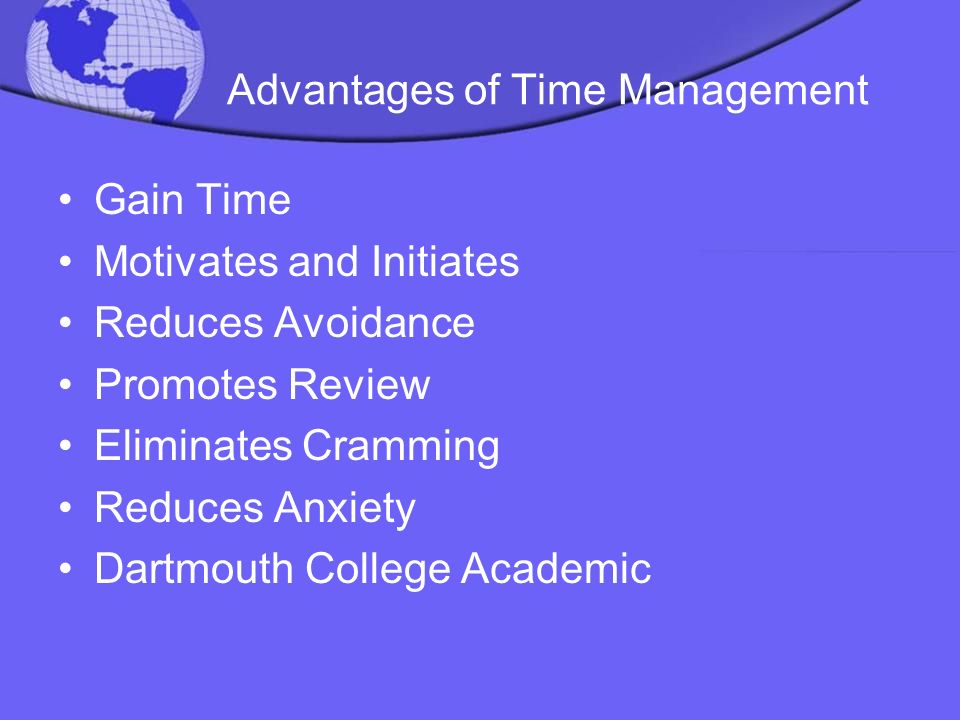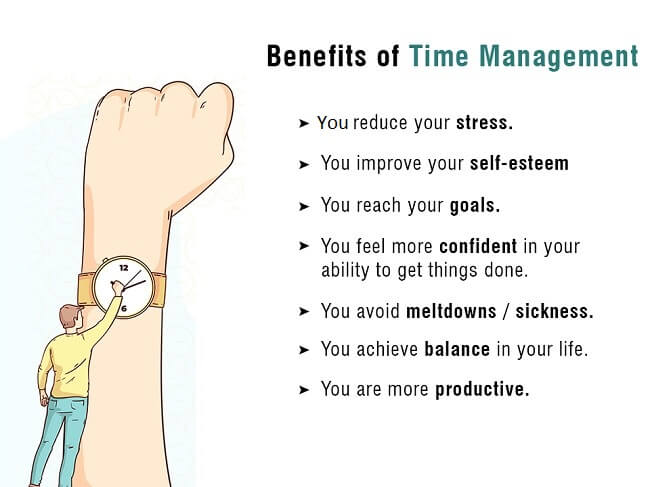
Do you feel overwhelmed by the demands of student life? Are you looking to excel academically while still having time for your interests and passions? If so, you’re in the right place. In this article, we will explore the advantages of time management for students, like you, and how it can revolutionize your educational experience.
Imagine effectively balancing coursework, extracurricular activities, and social life without sacrificing your physical and mental well-being. With good time management, you can achieve this and more.
By managing your time wisely, you can enhance productivity, reduce stress levels, and have a better work-life balance. But that’s not all. Time management also allows you to develop crucial skills that will benefit you long after you leave the classroom.
Mastering time management offers numerous benefits. It improves organization, prioritization, self-discipline, and focus. By taking control of your life and maximizing every minute, you can stay on top of assignments, meet deadlines effortlessly, and unlock your full potential as a student.
If you’re ready to transform your student experience and achieve unprecedented success, read on. In the upcoming sections, we will explore the advantages of time management, providing practical tips and insights to help you seize the day and make every second count.
Time management is crucial for students. It can lead to better grades, more opportunities, and a fulfilling lifestyle. Let’s explore the advantages in detail!
Advantages of Time Management for Students
Time management is crucial for students. It helps them effectively handle their academic responsibilities and achieve success. One advantage of time management for students emphasizes the ability to prioritize tasks and allocate sufficient time. Creating a schedule allows students to identify important tasks and ensure enough dedicated time, avoiding last-minute rush and stress.
One advantage of time management for students is that it maintains a healthy work-life balance. By allocating specific time slots for studying, attending classes, and engaging in extracurricular activities, students can avoid feeling overwhelmed. This balance allows them to excel academically and participate in hobbies, exercise, and spend time with friends and family, essential for their well-being.
Additionally, time management instills discipline and self-control in students. By setting deadlines and adhering to them, students learn to prioritize tasks and resist procrastination. This discipline helps them develop good habits and work ethic, benefitting them academically and professionally.
Effective time management enables students to maximize their time and reduce wasted hours. By setting goals and deadlines, students become more focused and productive, eliminating distractions like social media or excessive TV watching. This maximization of time can lead to improved academic performance and the ability to pursue personal interests outside of academics.
In conclusion, time management is essential for students as it prioritizes tasks, maintains a healthy work-life balance, develops discipline, and makes the most of their time. By implementing effective time management strategies, students can improve their academic performance, reduce stress, and achieve success.
Overview

Time management is essential for students to effectively organize their tasks, prioritize responsibilities, and maximize available time. It helps create a balance between academic, professional, and personal commitments, enabling both academic success and a fulfilling lifestyle.
Effective time management increases productivity and efficiency. Meeting deadlines and avoiding procrastination reduces stress and anxiety while optimizing academic performance.
One effective way for students to manage their time is by creating a schedule or using a planner. This allows them to visually see their tasks and allocate specific time slots for each activity. Mind maps and to-do lists can also be helpful tools for organizing and prioritizing tasks.
To further understand the advantages of time management for students, let’s take a look at the following table:
Advantages of Time Management for Students
– Increased productivity and efficiency
– Better organization and prioritization
– Improved academic performance
– Reduced stress and anxiety
– Healthy work-life balance
– Meeting deadlines
Enhanced self-discipline & motivation (%#%(Add
s Needed)
Overall, time management plays a crucial role in a student’s life. It empowers them to take control of their time, make informed decisions, and balance their academic, personal, and professional responsibilities. By developing this skill, students can maximize their potential and achieve their goals effortlessly.
Key Features or Points
– Improved Productivity: Time management helps students prioritize tasks, set goals, and allocate time efficiently. This allows students to complete tasks promptly and make the best use of their time.
– Reduced stress: Effective time management can alleviate stress by organizing schedules and breaking tasks into manageable portions. This results in a more balanced and less stressful academic experience.
– Increased Efficiency: Time management allows students to identify their most productive periods and allocate time accordingly. By optimizing their work patterns, students can accomplish more in less time.
– Improved academic performance: Effective time management can lead to improved academic performance and grades.
– Enhanced personal development: Time management skills learned in student years have a lasting impact on personal development. These skills transfer to work, relationships, and hobbies.
– Better work-life balance: Proper time management allows students to balance academics and personal life. It enables participation in extracurriculars, socializing, and self-care for overall well-being.
Time management requires self-discipline. Developing these skills helps students become more disciplined in their approach to their studies and life. Time management is a crucial skill for students. It enhances academic performance and prepares them for future challenges and responsibilities. Students can achieve a balance between academic commitments and personal life by effectively managing their time, leading to a fulfilling and successful college experience.
Practical Tips or Strategies

There are practical tips and strategies students can use to improve time management skills. One effective strategy is creating a schedule to allocate specific time slots for studying, classes, and assignments. This ensures enough time is dedicated to each task, reducing overwhelm or falling behind. Another strategy is prioritizing tasks based on importance and deadline. By identifying and focusing on the most crucial activities, students save time. Breaking down large tasks into manageable parts also helps students make progress towards their goals.
Finding the right study environment is crucial for students. Some may prefer a quiet library, while others may gravitate towards coffee shops. Understanding which setting helps them concentrate can greatly improve time management. Lastly, students must learn to decline. Overcommitting to extracurriculars and social obligations can hinder academic progress. Prioritizing academics and allotting study time is key. Saying no to nonessential commitments is essential for a balanced and effective time management strategy.
Personal Perspective or Case Study

As a student who struggled with time management, I can attest to the advantages it offers. Before implementing a control system, I was constantly overwhelmed with the number of tasks and assignments. I would procrastinate and leave everything until the last minute, causing stress and lower quality work. However, once I started prioritizing and allocating specific time slots, I noticed a significant improvement in my productivity and academic performance.
One case study that demonstrates the benefits of time management is my experience with studying for exams. Rather than cramming all the material into one night, I began setting aside time each day to review the material for each subject. This not only alleviated the pressure of learning everything in a short amount of time but also improved information retention. By breaking down the studying process into smaller chunks, I could distribute my efforts effectively and achieve higher grades.
Furthermore, implementing a time management system helped me maintain a healthy work-life balance. Previously, I would sacrifice my social life and extracurricular activities to focus solely on academics. However, by allocating specific time slots for studying, relaxation, and socializing, I struck a balance. This not only decreased stress but also developed valuable time management skills for my future endeavors.
From my personal perspective and case study, I believe that time management is invaluable for students. It enhances organization, productivity, and academic performance while reducing stress. Implementing a time management system as a priority helps students successfully balance their academics and student life.
Summary and Final Thoughts
Throughout this article, you have learned about the advantages of time management for students and its positive impact on your academic and personal life. By implementing effective time management strategies, you can enhance productivity, reduce stress, and achieve goals more efficiently.
First and foremost, you discovered that time management allows you to prioritize tasks and allocate time wisely. By creating a schedule and setting specific goals, you can ensure focus on important and urgent tasks, rather than getting overwhelmed by the volume of work.
You learned about creating a conducive study environment and eliminating distractions. By finding a quiet and organized space, you optimize concentration and maximize productivity. Avoiding distractions like social media improves focus and task completion.
Additionally, this article emphasized self-discipline and setting realistic expectations. By practicing self-discipline, you develop effective habits and avoid procrastination. Setting realistic expectations avoids burnout and maintains work-life balance.
Now that you have these insights, reflect on how they can be applied to your own situation. Consider implementing time management techniques that meet your specific needs and goals. Small changes can optimize your time and lead to success.
In summary, time management is a crucial skill for students. By applying the strategies discussed in this article, you can unlock your full potential and excel academically. Start taking control of your time and future today. You have the power to create positive change.
Thank you for reading. Please share your thoughts and experiences with time management in the comments below. For more tips and resources on this topic, explore our related articles and join our community of goal-oriented individuals.
